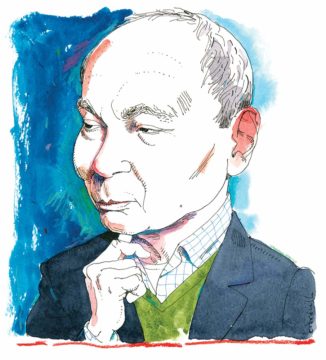Daniel Bessner at The Nation:
 The end of the Cold War was supposed to usher in a better world. After four decades of struggle, the great battle between liberalism and Bolshevism had ended in the former’s decisive victory. Many in the West hoped that liberalism would now have free rein to shape events around the world. Utopia, at least of a liberal form, was finally within humanity’s grasp.
The end of the Cold War was supposed to usher in a better world. After four decades of struggle, the great battle between liberalism and Bolshevism had ended in the former’s decisive victory. Many in the West hoped that liberalism would now have free rein to shape events around the world. Utopia, at least of a liberal form, was finally within humanity’s grasp.
No essay embodied this feeling more than “The End of History?” Published in 1989 in The National Interest and written by a then-unknown State Department official named Francis Fukuyama, the piece proffered a simple three-step argument. First, Fukuyama claimed that throughout the world, people had decided that liberal democratic capitalism was superior to the authoritarian communism produced by Bolshevism and Maoism. Second, he argued that liberalism’s triumph meant that “History”—understood as the struggle between rival ideologies—had ended. Finally, he concluded that, over time, many nations that hadn’t yet become liberal capitalist democracies would inevitably do so, and that this would be good for humankind.
more here.
